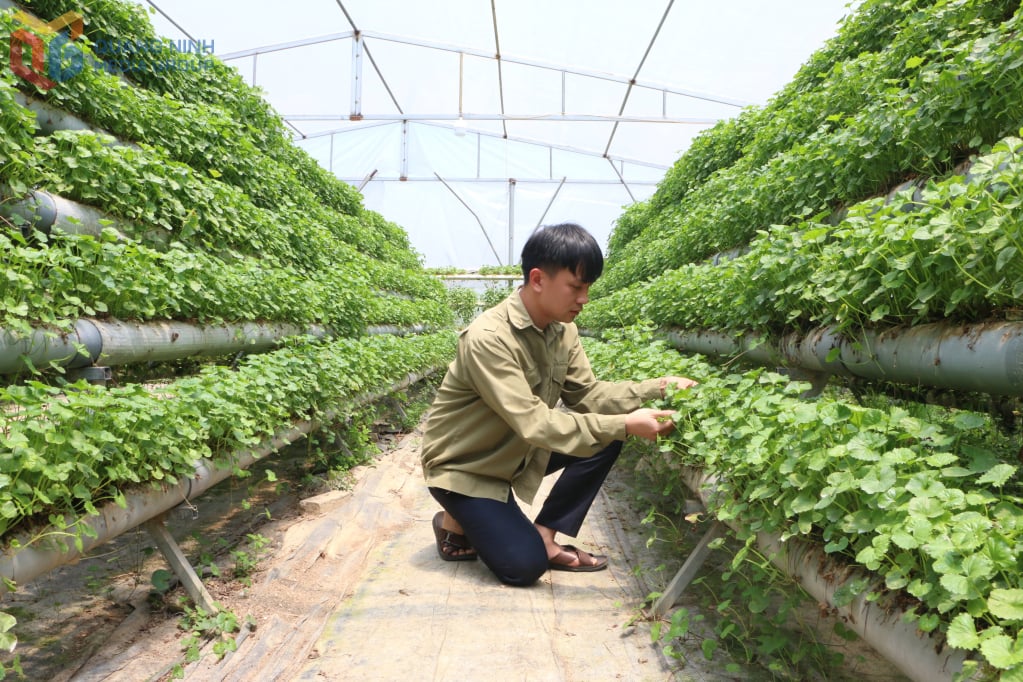
Before being known as the pioneer with the first hydroponic pennywort growing model in Quang Ninh, Mr. Cao Van Hung had experienced many failures. Growing hydroponic vegetables (water spinach, mustard greens) and trying the high-tech grape model... all did not bring the expected results. Failure after failure, but Mr. Hung never gave up his passion for clean agriculture .
In 2022, after researching and learning about the characteristics of plants suitable for hydroponics, he decided to choose pennywort - also known as Vietnamese pennywort - for experimental planting. This is an easy-to-grow plant that can be grown year-round and harvested in all four seasons, suitable for greenhouse conditions and automatic care systems. "Gotu kola is a familiar plant, but few people think it can be grown hydroponically. I want to prove that it is completely feasible, while creating clean, safe products for consumers' health," Mr. Hung shared.
On an area of 750m², Mr. Hung invested more than 1 billion VND to build a modern hydroponic pennywort growing system, using solar energy, automating the care and irrigation stages. From choosing the coconut fiber substrate to the circulating nutrient pumping system, every stage is designed methodically and closed. Thanks to the methodical approach and perseverance, the model began to produce quality pennywort crops, which were positively received by the market. The yield is steady, the quality of fresh pennywort ensures food safety, and there are few pests and diseases due to complete isolation from the soil and natural parasitic agents.
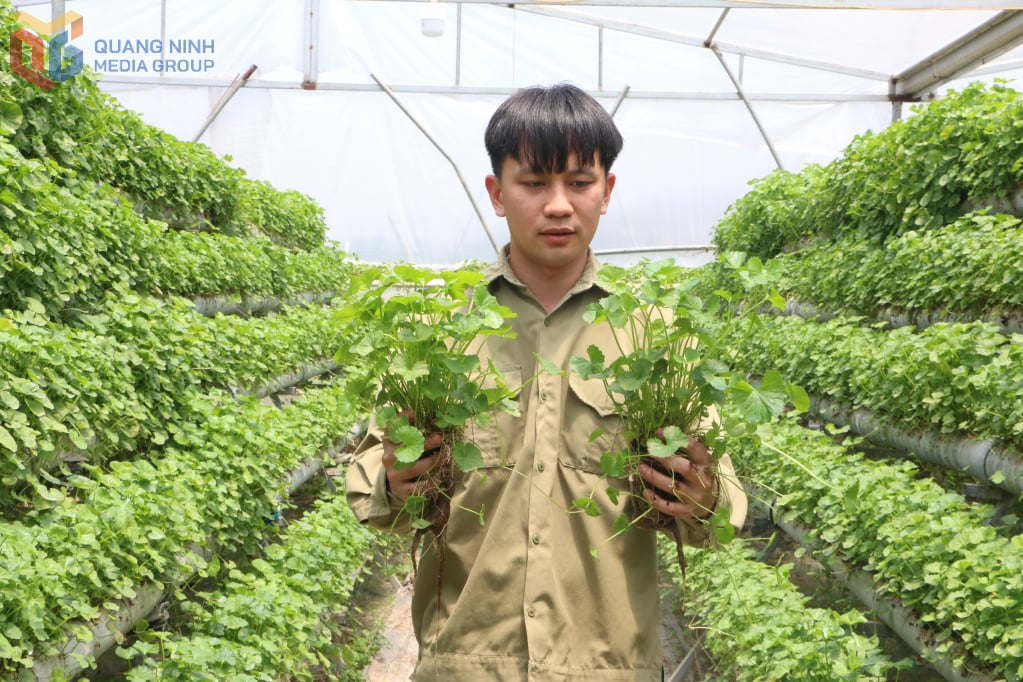
However, when the model began to stabilize, storm No. 3 swept through the Dong Trieu area in September 2024, completely destroying the greenhouse system and hydroponic pennywort growing system. More than 1 billion VND invested and two years of hard work were almost lost. "I poured all my capital and time into it. Looking at the ruined hydroponic pennywort garden, I felt heartbroken," Mr. Hung recalled.
However, it was during the most difficult times that Hung's resilient spirit and strong belief in clean agriculture pulled him back. After just a few weeks of cleaning up and recalculating the model, he started to rebuild from scratch. Nearly a year after the "rebirth", Hung's hydroponic pennywort model has returned strongly with more than 20 modern hydroponic pennywort racks.
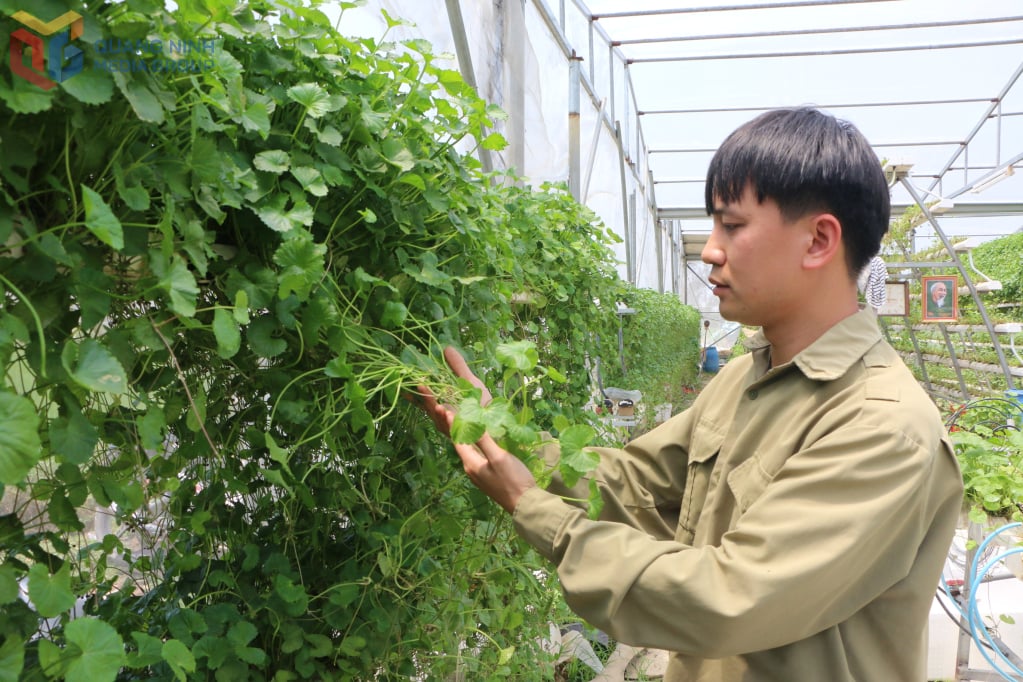
Currently, on average, the farm supplies 40-50kg of fresh pennywort and 150-200 liters of pure juice to the market every day. The products are not only highly appreciated by consumers for their cleanliness and natural taste, but also for their stable supply. Not stopping there, Mr. Hung also expanded his direction by providing seedlings and growing media to households in need, while creating jobs for 2 local workers.
“I consider every step very carefully, from choosing seeds, planting techniques to processing and preservation. I always think that the products I make are not only for sale but also a responsibility to consumers,” he said.
Currently, Mr. Hung is investing in building a factory system for deep processing of pennywort juice, aiming to create a closed value chain from planting, processing to product consumption. The production process at the farm is strictly controlled from measuring the pH and EC index of the nutrient solution daily, cleaning the pipes after each harvest cycle to preliminary processing - packaging - preservation, all in compliance with safety standards. Thanks to hydroponic growing techniques, pennywort at the farm is almost pest-free, has no pesticide residues, ensuring clean vegetable standards and food safety.
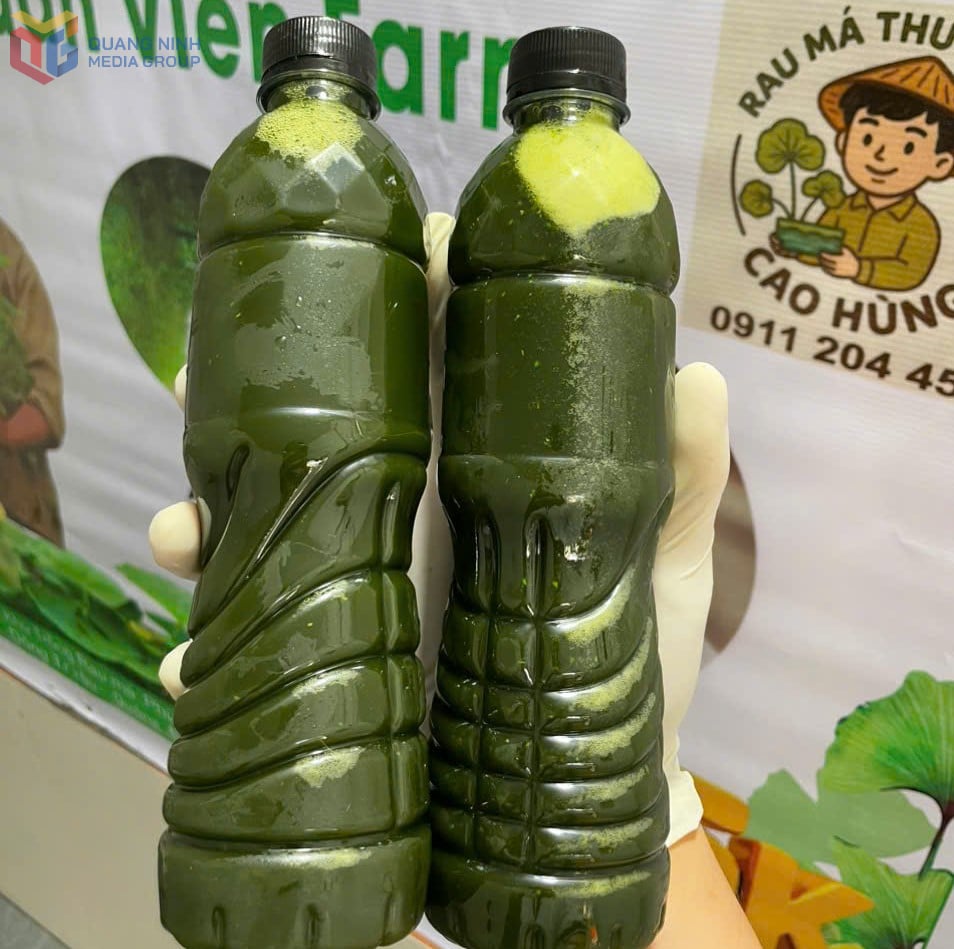
“Agriculture today cannot be done in the old way. To be successful, you must apply technology, learn continuously, and dare to try and do. My goal is to build a clean, reputable brand of pennywort juice that can stand firm not only in Quang Ninh but also in large markets,” Mr. Hung shared with determination.
Source: https://baoquangninh.vn/nguoi-khoi-nghiep-tu-mo-hinh-rau-ma-thuy-canh-3358407.html


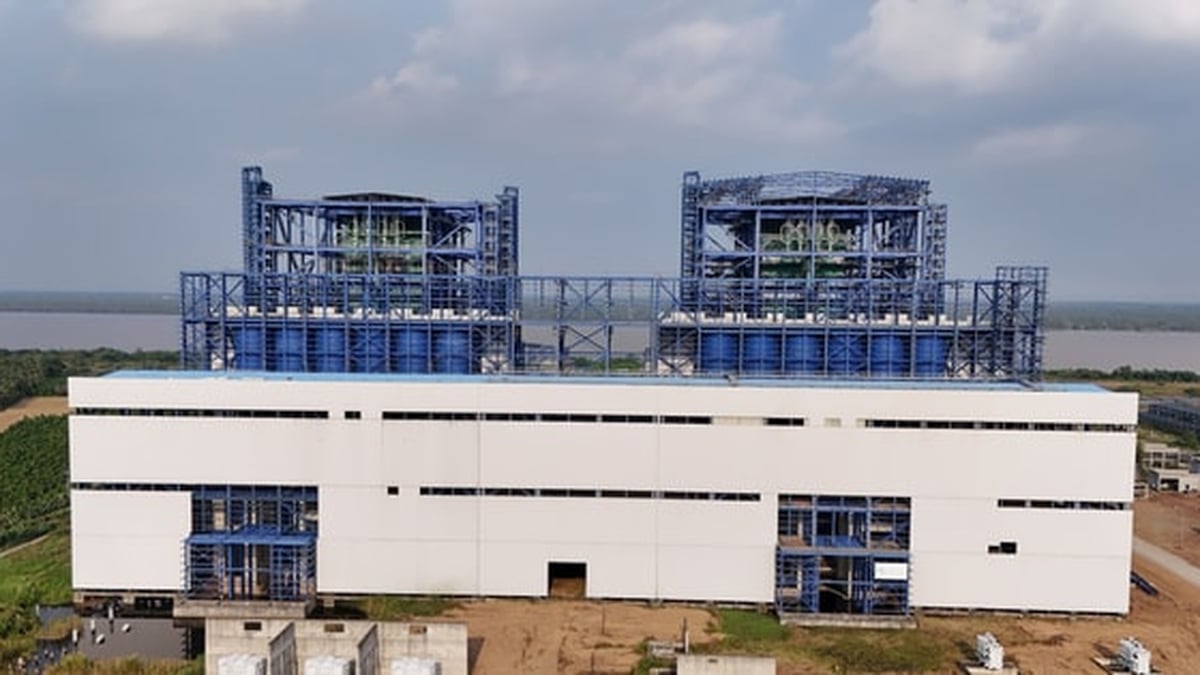
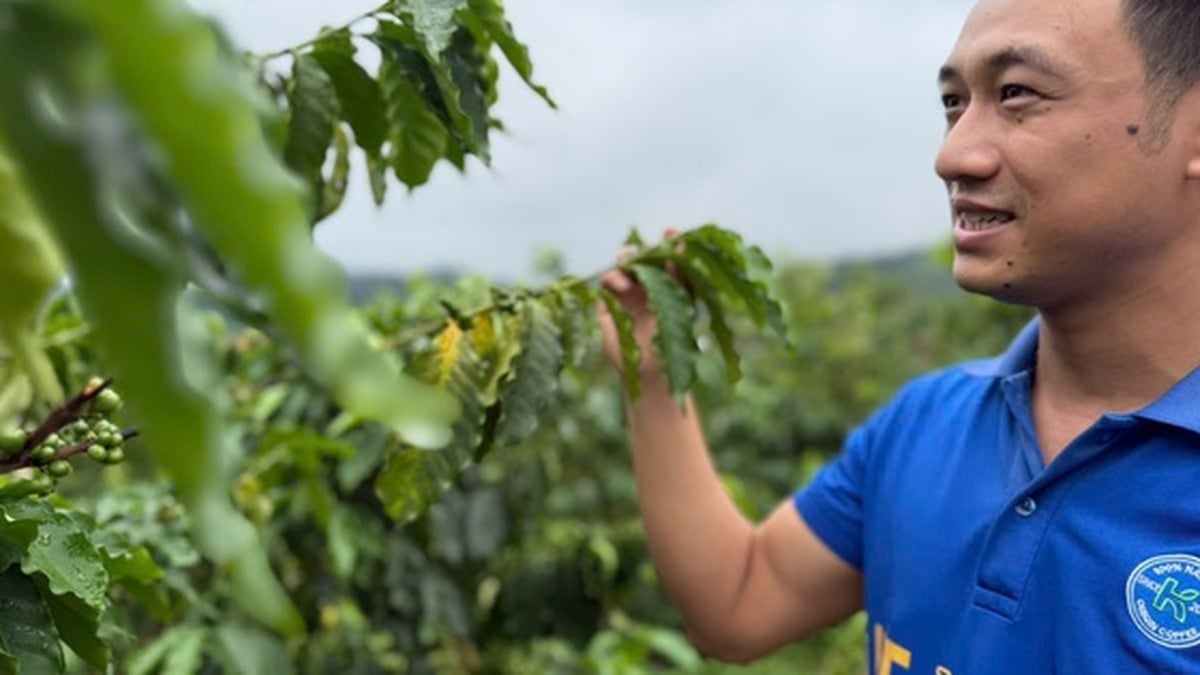


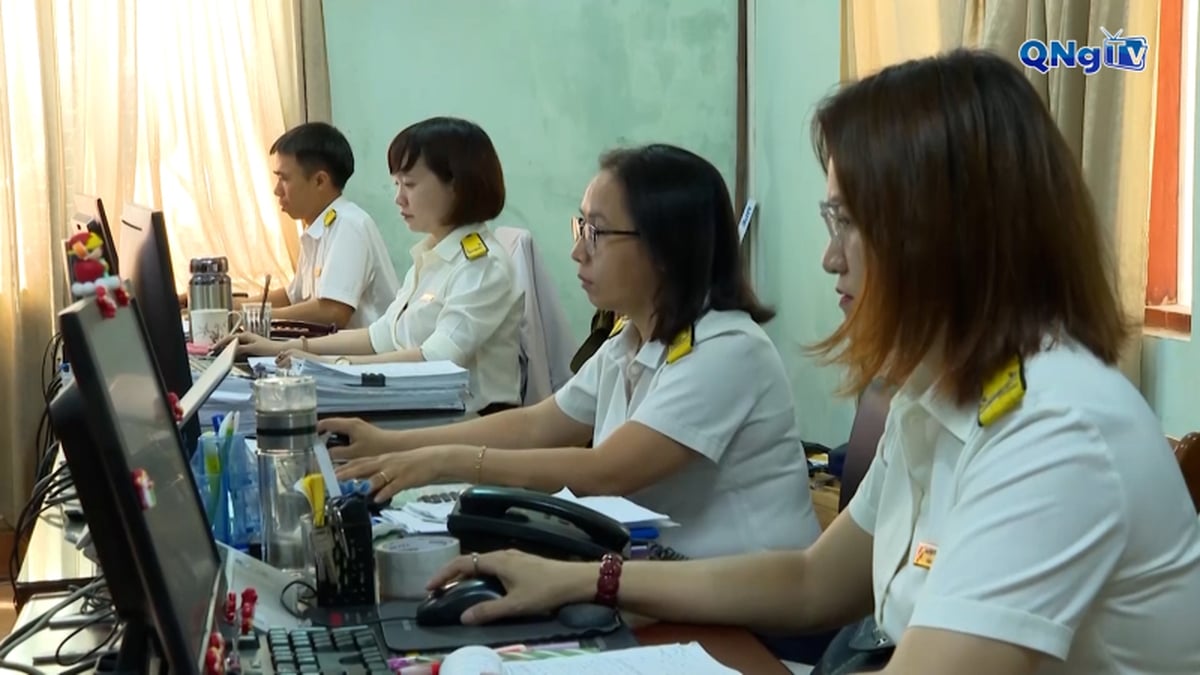
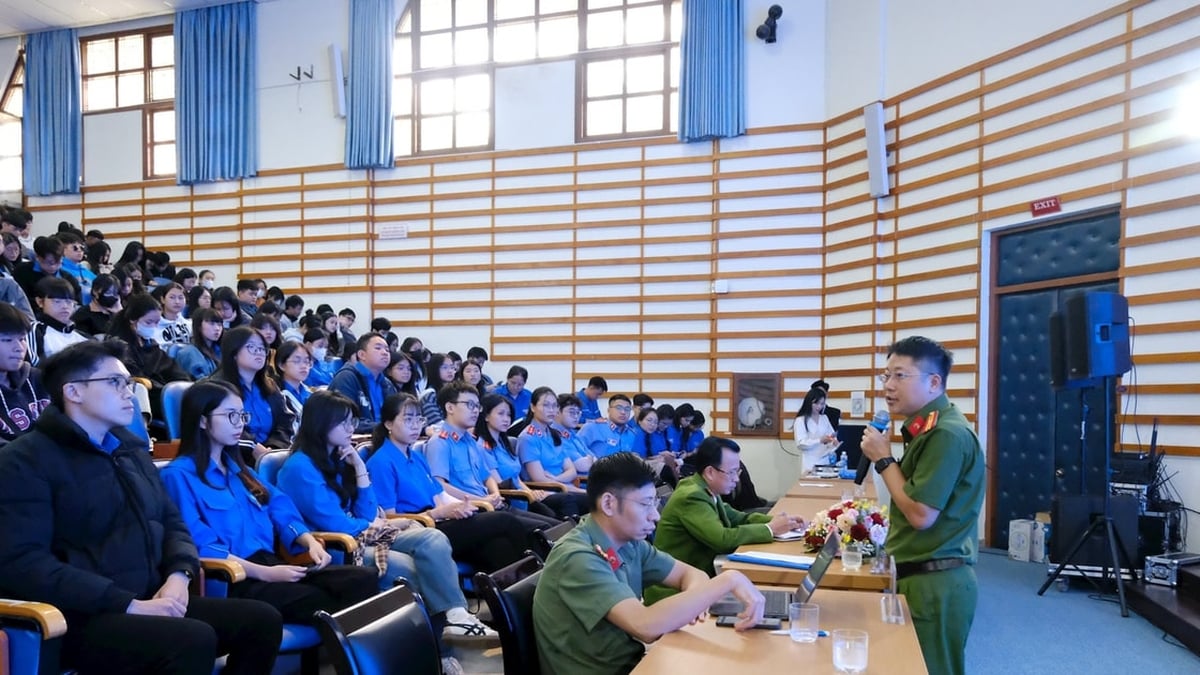



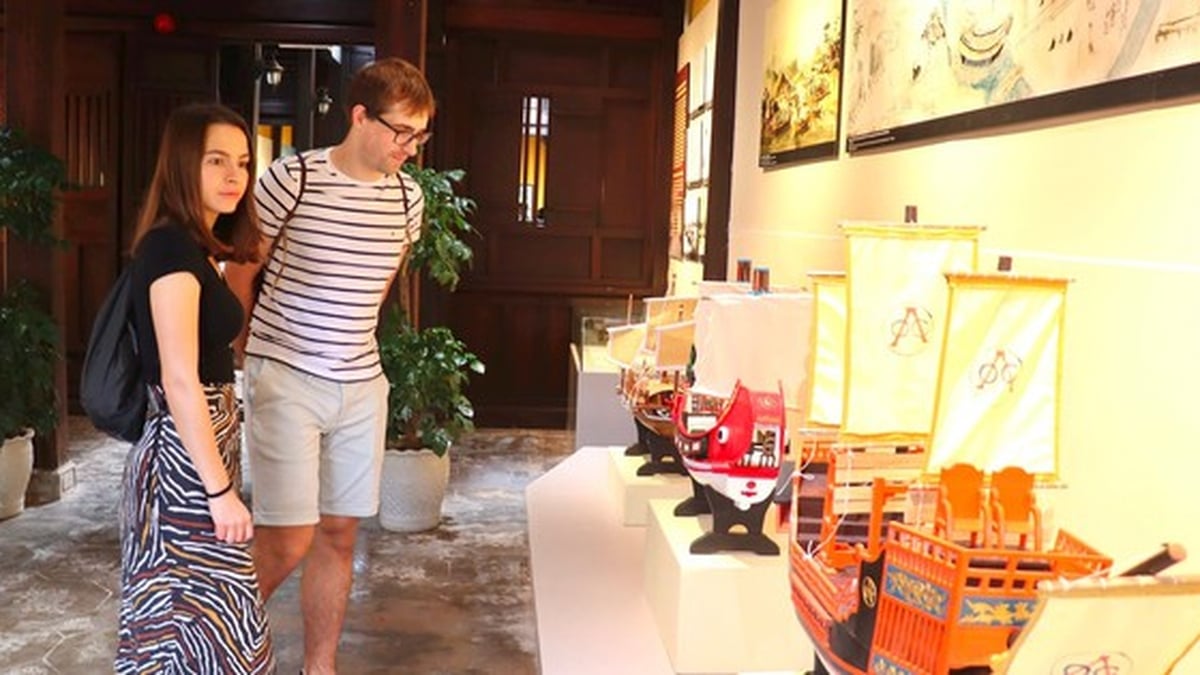













































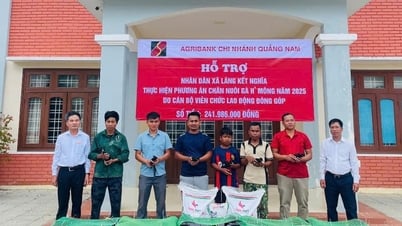

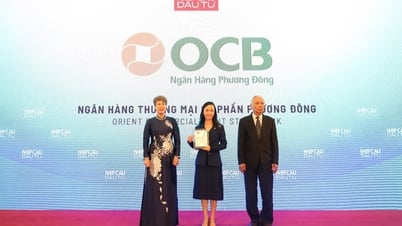


















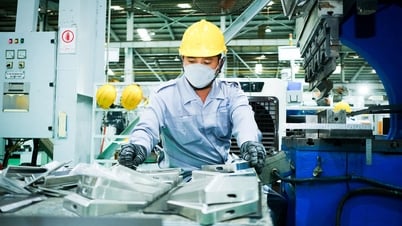















![[Infographic] In 2025, 47 products will achieve national OCOP](https://vphoto.vietnam.vn/thumb/402x226/vietnam/resource/IMAGE/2025/7/16/5d672398b0744db3ab920e05db8e5b7d)







Comment (0)